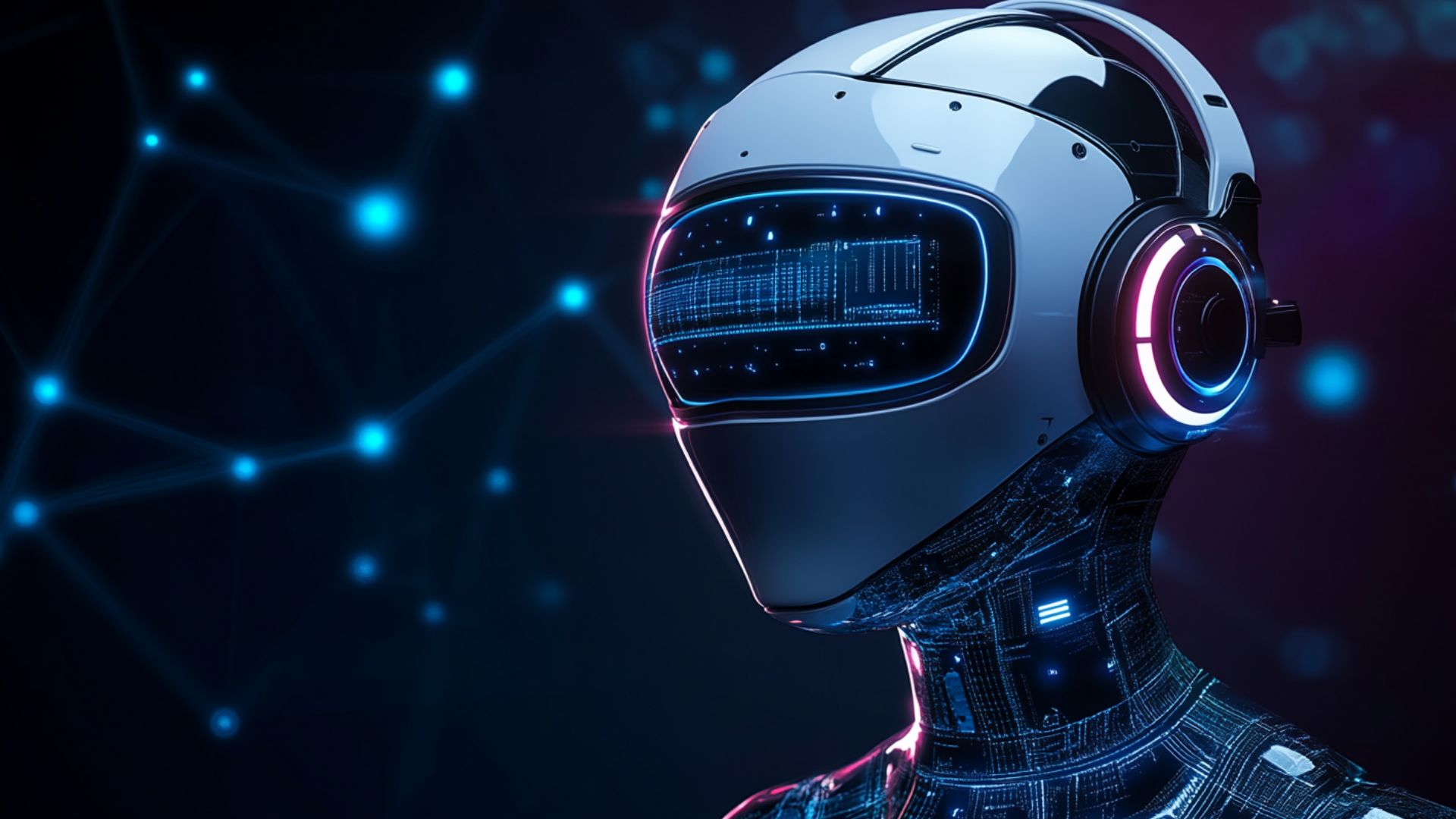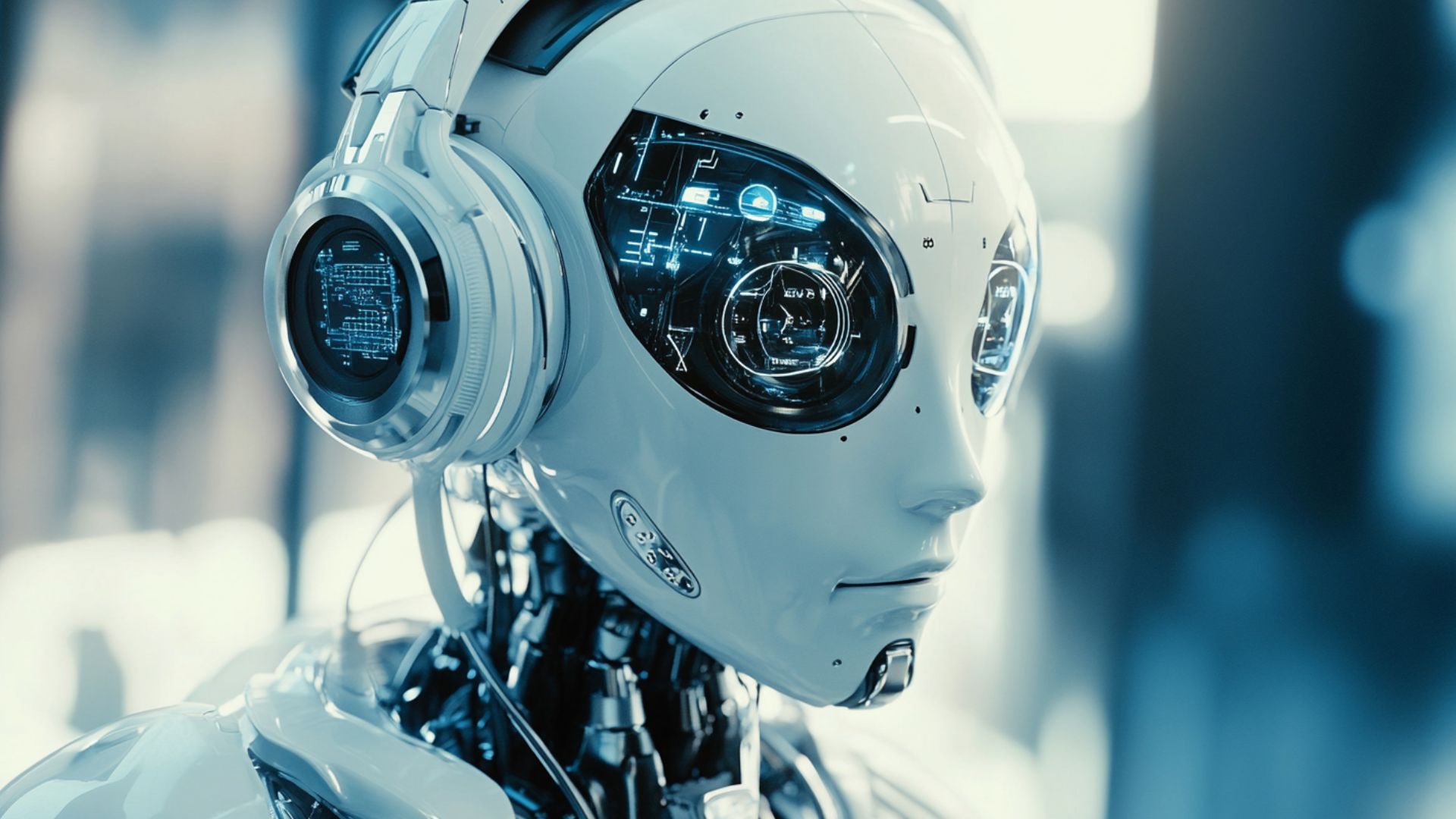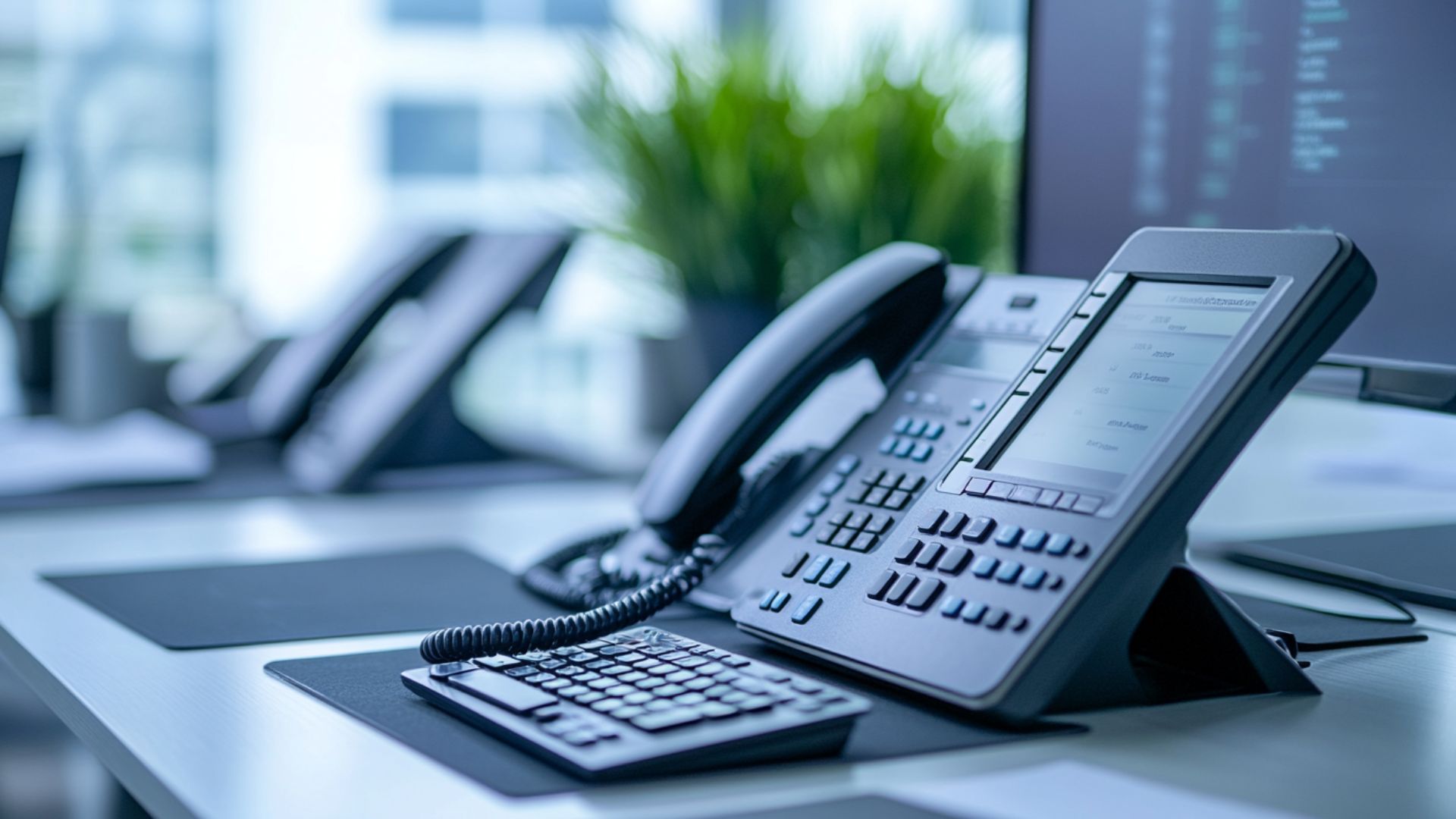AI Virtual Receptionist: 24/7 Phone Answering for Small Businesses
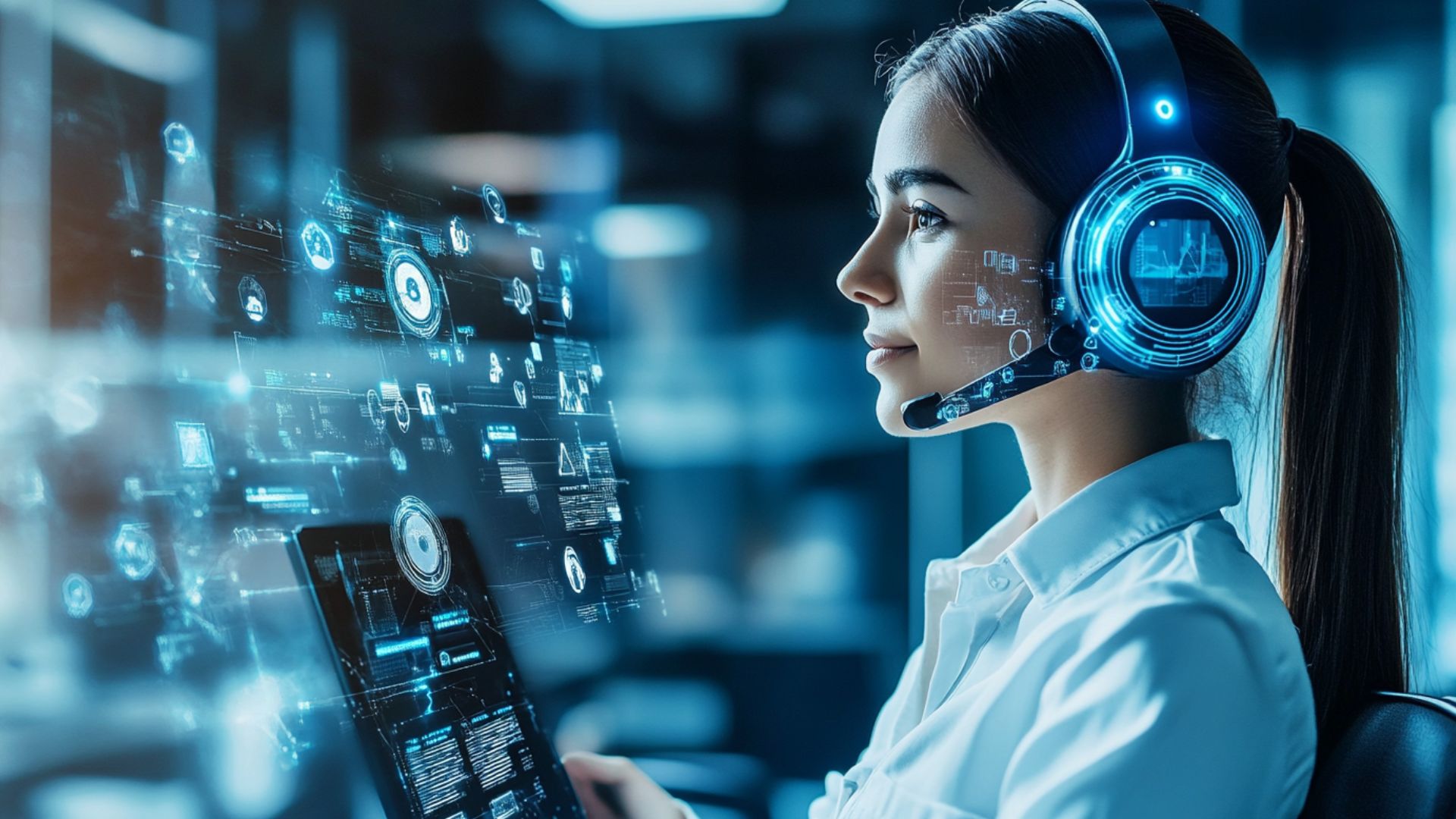
In today's fast-paced business environment, small businesses face the challenge of delivering exceptional service while managing limited resources. A single missed call can result in a lost customer or missed opportunity, which can be detrimental to growth.
Hiring full-time receptionists is often expensive and impractical for small operations. This is where an AI virtual receptionist comes in. It offers a cost-effective, reliable solution for round-the-clock phone answering. By leveraging advanced AI technology, small businesses can ensure professional customer interactions. They can reduce missed calls and support long-term growth without the overhead of additional staff.
An AI virtual receptionist is a software-based system that uses AI technology to:
- Manage incoming calls
- Answer questions
- Schedule appointments
- Route calls to the appropriate team members
Unlike traditional receptionists, it operates 24/7. It ensures no call goes unanswered, regardless of whether it's during business hours or at night. This makes it valuable for small businesses looking to enhance customer satisfaction while keeping costs low.
In this article, we'll explore what an AI receptionist is. We'll discuss its benefits, key features, and how it can transform customer service for small businesses. We'll also cover its integration with business tools, security measures, and the future of this innovative technology.
What Is an AI Virtual Receptionist and How Does It Work?
An AI receptionist is an automated system powered by artificial intelligence to handle phone calls like human interaction. Unlike a human receptionist, it doesn't require breaks, salaries, or office space. This makes it an affordable alternative for small businesses. The system relies on advanced technologies including:
- Voice recognition
- Natural language processing (NLP)
- Intelligent call routing
These technologies help understand the caller's needs and respond appropriately. For example, it can greet callers, answer common questions, book appointments, or transfer calls. This is all based on predefined rules or the caller's specific requests.
Compared to traditional human receptionists, an AI virtual assistant offers significant advantages. These include cost-efficiency and the ability to serve as a 24-hour virtual receptionist. Human receptionists are limited by working hours and can only handle a few calls at a time. However, AI systems can manage multiple simultaneous calls. This ensures that no customer is ever left waiting.
An AI receptionist also differs from an AI auto attendant. An AI auto attendant is a simpler system focused on basic call routing or menu options. An AI receptionist can engage in dynamic, human-like conversations. It can understand context and provide personalized responses tailored to customer needs.
The technology analyzes the caller's speech and determines their intent. It responds based on scripts or programmed logic. For instance, when a caller asks about store hours, the AI can instantly provide accurate information. If the caller needs to speak to a specific department, the system routes the call efficiently. This makes it an ideal receptionist solution for small business owners. They can maintain professional call handling without the expense of hiring additional staff.
Key Benefits of Virtual Receptionist Services for Small Businesses
A virtual reception service provides small businesses with benefits that enhance operations and improve customer experience. Here are the primary advantages:
- Always-on support. A 24/7 virtual receptionist ensures that calls are always answered at any time, day or night. This is critical for industries like real estate, where clients may call after hours about listings. It's also essential for healthcare, where patients may need to schedule urgent appointments.
- Professional call handling. An AI phone receptionist service delivers consistent, polite, and professional responses. This creates a positive first impression for callers. It helps build trust and strengthens your brand's reputation.
- Reduced overhead costs. Hiring a full-time receptionist involves salaries, benefits, training, and workspace costs. An AI solution eliminates these expenses. This makes it a budget-friendly option for small businesses with tight margins.
- Scalability without HR complexity. As a business grows, call volumes may increase. An AI receptionist can handle these fluctuations without the need to hire additional staff. This offers flexibility for industries like legal services or wellness centers.
For example, a small real estate agency can use a virtual receptionist to answer inquiries about property listings anytime. This ensures no potential client is missed. A wellness center might rely on the system to book appointments or provide directions. This frees up staff to focus on in-person services. Similarly, a small law firm can use the AI to schedule consultations. This allows attorneys to prioritize client work over administrative tasks. These examples highlight how virtual receptionist business services can adapt to various industries. They deliver tailored solutions that drive efficiency and customer satisfaction.
AI Receptionist vs AI Answering Machine: What's the Difference?
Both an AI receptionist and an AI answering machine handle phone calls, but they serve different purposes. An AI answering machine is a basic system designed to record messages or provide pre-recorded responses. It's similar to a traditional voicemail system. It lacks the ability to engage in real-time conversations or perform complex tasks. For example, it cannot schedule appointments or route calls based on caller intent.
In contrast, an AI virtual receptionist is far more sophisticated. It can hold natural, dynamic conversations. It can understand the context of a caller's request and execute tasks. For example, booking appointments, answering FAQs, or transferring calls to the appropriate team member.
For instance, a wellness center might use an AI receptionist to help with appointments, provide directions, or reschedule bookings. Meanwhile, an answering machine would only record a message for later review. This distinction makes virtual receptionist services a more robust and versatile solution. This is especially true for small businesses that aim to provide top-tier customer service.
How a 24/7 Virtual Receptionist Handles Inbound Calls Professionally
A 24/7 virtual receptionist manages inbound calls with professionalism and efficiency. It ensures every interaction reflects well on the business. Here's how it accomplishes this:
- Customizable scripts. Businesses can tailor greetings and responses to align with their brand's tone and style. For instance, a dental office might configure the AI to greet callers with "Welcome to Smile Dental, how can we help you today?" This creates a consistent and professional experience.
- Appointment booking. The system integrates with calendars to schedule appointments, send reminders, and handle cancellations or rescheduling requests. This saves time for staff and reduces errors.
- Call forwarding. When a caller needs to speak to a human, the AI routes the call appropriately. It directs calls to the right team member or department based on predefined rules. This ensures quick resolution.
- Voicemail transcription. For calls that go unanswered, the system transcribes voicemails into text. This allows businesses to review and respond to messages quickly via email or dashboard.
- Personalized responses. The AI can use caller data like names or past interactions to provide a personalized experience. This makes customers feel valued.
These features ensure that every caller receives a professional and seamless experience. This applies whether they call during business hours or at 2 a.m. For example, a small retail business can use a phone receptionist service to handle customer inquiries. These might be about store hours, product availability, or return policies, even on weekends or holidays. This level of service enhances customer satisfaction and helps businesses stand out in competitive markets.
Core Features to Look For in a Virtual Receptionist Phone System
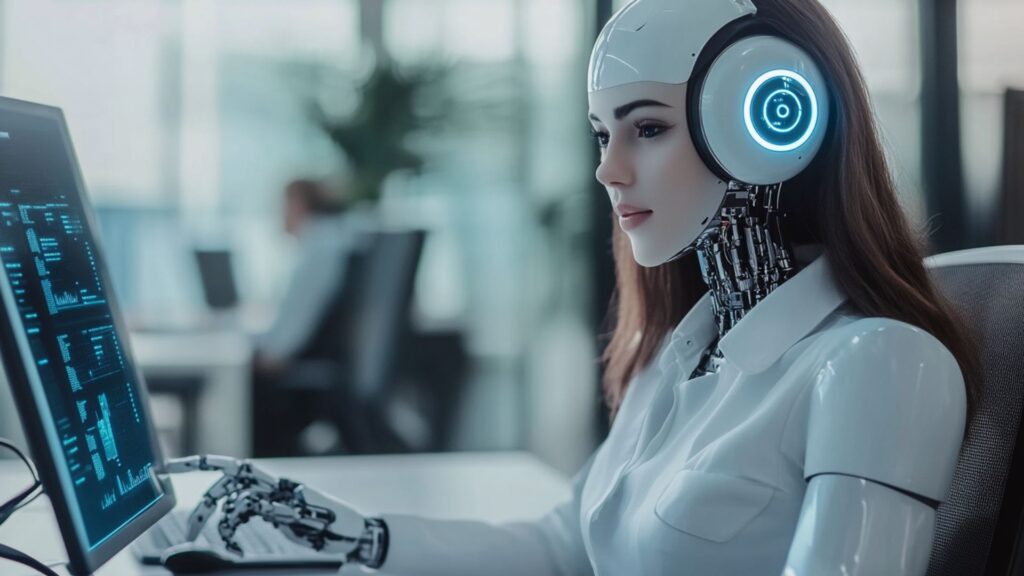
When selecting a receptionist phone system, small businesses should prioritize key features. These must align with their operational needs and customer expectations. Here are the essential capabilities to consider:
- Multi-language support. A system that supports multiple languages can cater to diverse customer bases. This is especially valuable for businesses in industries like hospitality, e-commerce, or healthcare.
- CRM integration. Connecting the system to CRM platforms like Salesforce, HubSpot, or Zoho ensures seamless data flow. This allows businesses to track customer interactions and follow up on leads effectively.
- Intelligent call routing. The receptionist phone system should analyze caller input and direct calls appropriately. It should route calls to the right department or person. This reduces wait times and improves efficiency.
- Business hours vs after-hours settings. Businesses can configure different responses for regular hours and after-hours. This ensures appropriate handling based on the time of day. For example, after-hours callers might receive a message about emergency contacts. Or they can be directed to leave a voicemail.
- Reporting and analytics. Detailed call logs, performance metrics, and analytics help businesses understand call patterns. They can identify peak times and assess customer needs. This enables data-driven decisions to improve service.
For instance, a small legal practice might prioritize CRM integration to track client interactions and ensure follow-ups. Meanwhile, a retail business might focus on multi-language support to serve a diverse customer base. A robust reception service will offer these features to meet the varied needs of small businesses. This ensures flexibility and scalability.
Integrating AI Receptionists with Business Tools
Modern 24-hour virtual receptionists can integrate seamlessly with various business tools. This enhances productivity and streamlines workflows. Key integrations include:
- Calendar integration. Syncing with tools like Google Calendar, Microsoft Outlook, or Calendly allows the AI to manage appointments. It can check availability and avoid scheduling conflicts. For example, a real estate agent can have the AI book property tours directly into their calendar.
- CRM platforms. Integration with CRMs ensures that caller information is automatically logged. This includes names, contact details, and interaction history. It helps businesses maintain accurate records and nurture leads effectively.
- Ticketing systems. For businesses with customer support teams, the AI can create tickets in systems like Zendesk or Freshdesk. This ensures that customer issues are tracked and resolved promptly.
- Communication tools. Integration with platforms like Slack, Microsoft Teams, or email systems allows the AI to notify staff. It can alert them about urgent calls or messages, ensuring quick responses.
For example, a small e-commerce business might use a reception service that syncs with its CRM. This logs customer inquiries and tracks order statuses. Meanwhile, a medical practice might integrate with a ticketing system to manage patient requests. These integrations reduce manual work, minimize errors, and ensure that no task falls through the cracks. This makes the AI receptionist a central hub for business operations.
Security and Compliance in AI Phone Reception Services
When using a phone receptionist service, security and compliance are critical. This is especially true for businesses handling sensitive customer information. AI systems must adhere to strict privacy regulations. These include HIPAA for healthcare providers or GDPR for businesses serving European clients. Key security features to look for include:
- Data encryption. All call data should be encrypted to protect against unauthorized access. This includes recordings, transcriptions, and customer details.
- Secure storage. Customer data must be stored in secure, cloud-based systems with proper access controls. This prevents data breaches.
- Compliance with regulations. The phone receptionist service system should meet industry-specific standards. This includes HIPAA for medical practices, PCI-DSS for businesses handling payment information, or GDPR for European data protection.
- Audit trails. Detailed logs of system activity ensure transparency and accountability. This is crucial for compliance audits.
For example, a healthcare provider using a reception service can ensure patient data is protected. This happens through encrypted call handling and secure voicemail storage. Similarly, an e-commerce business handling credit card information can rely on PCI-DSS-compliant systems. This maintains customer trust. Choosing a provider with robust security measures is essential for safeguarding sensitive data and meeting legal requirements.
Is an AI Receptionist Right for Your Business? Key Considerations

Deciding whether an AI virtual receptionist is the right fit for your business requires careful evaluation. You need to assess your needs and goals. Here's a checklist to guide your decision-making:
- Call volume. If your business receives a high volume of calls, an AI system can handle them efficiently. This reduces the burden on staff.
- Budget. Compare the cost of an AI solution to hiring a full-time receptionist. AI systems are typically more affordable. They offer predictable monthly fees without additional overhead.
- Customer expectations. If your customers expect quick, professional responses, an AI receptionist can meet those demands consistently. This applies even during peak times.
- Industry-specific needs. Certain industries benefit from key features like appointment scheduling, multilingual support, or regulatory compliance. These include healthcare, real estate, or legal services.
- Scalability. Consider whether your business is likely to grow, leading to increased call volumes. An AI receptionist can scale effortlessly without the need for additional hires.
For example, a small e-commerce business with seasonal call spikes might find a 24/7 virtual receptionist invaluable. It can manage customer inquiries during busy periods like holidays. A legal practice might prioritize compliance and CRM integration. This ensures client data is handled securely and efficiently. By assessing these factors, you can determine whether an AI receptionist aligns with your operational and financial goals.
Future Outlook: AI Receptionist Technology and Evolving Customer Service
The future of AI reception service technology is promising. Advancements are set to further revolutionize customer service for small businesses. Key trends to watch include:
- Advanced conversational AI. Future systems will leverage enhanced NLP to understand complex requests and handle nuanced conversations. This will make interactions feel even more natural and human-like.
- Voice bots with emotional intelligence. Emerging AI technologies will enable receptionists to detect caller emotions like frustration or urgency. They will adjust responses to provide appropriate empathy. This will enhance customer satisfaction.
- Enhanced multilingual capabilities. Improved language support will allow businesses to serve global customers seamlessly. This breaks down language barriers in industries like hospitality or e-commerce.
- Personalization through data. By analyzing past interactions, AI receptionists will deliver highly personalized experiences. For example, addressing callers by name or referencing previous inquiries.
- Integration with emerging technologies. AI receptionists will increasingly integrate with various tools. These include chatbots, virtual assistants, and IoT devices. This creates a unified customer service ecosystem.
For example, a small business serving international clients might use a multilingual AI receptionist. It can handle inquiries in multiple languages. Meanwhile, a wellness center could leverage emotional intelligence to provide compassionate responses to anxious callers. As these technologies evolve, virtual reception services will become even more personalized, efficient, and integral to customer service strategies.
An AI virtual receptionist offers small businesses a powerful, cost-effective tool to enhance customer service, streamline operations, and support growth. With 24/7 availability, professional call handling, and seamless integration with business tools, it addresses the unique challenges faced by small businesses in competitive markets.
With robust security measures and compliance capabilities, it ensures customer data remains protected. Its scalability makes it suitable for businesses of all sizes. As AI technology continues to advance, virtual reception services will play a vital role in delivering exceptional customer experiences. This helps small businesses thrive in an ever-evolving digital landscape
FAQ
An AI virtual receptionist is a digital system that answers calls, schedules appointments, routes callers, and provides information using AI. It delivers 24/7 phone answering without hiring full-time staff.
An AI receptionist uses voice recognition, NLP, and intelligent call routing to understand caller requests and respond naturally. It can greet callers, answer FAQs, transfer calls, and manage bookings automatically.
An AI auto attendant only routes calls through menus, while an AI virtual receptionist holds real conversations, understands intent, answers questions, schedules appointments, and personalizes responses.
A virtual reception service helps small businesses reduce missed calls, save money on staffing, improve customer experience, and provide professional 24/7 support without hiring multiple employees.
A 24 hour virtual receptionist ensures every call is answered day or night, improves response times, handles after-hours inquiries, and supports industries like real estate, healthcare, legal, and e-commerce.
A virtual receptionist 24/7 delivers consistent support, eliminates long wait times, offers instant answers, and ensures callers always reach a professional—no matter the hour.
A phone receptionist service can schedule appointments, provide store hours, answer product or service questions, route calls, send reminders, transcribe voicemails, and support multilingual callers.
No. An AI answering machine only records messages. An AI receptionist interacts in real time, answers questions, routes calls, and performs tasks like booking appointments.
